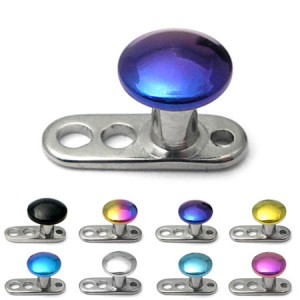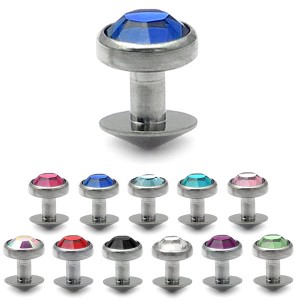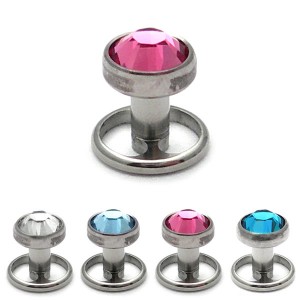What is a Dermal Piercing?
A dermal piercing is a one point piercing. This is where the entry and exit point is the same. Traditional surface piercings are two point piercings with a different entry and exit point.
Benefits of Dermal Piercing
The advantage of dermal piercings is that they can be placed almost anywhere on the body. Popular places are the hip, wrist, neck and chest. They can also be placed very close together so it’s easy to create patterns or to enhance a tattoo.
The added benefit of dermal piercing is that it heals much quicker than surface piercing, as there is a smaller wound and reduced trauma in the piercing procedure.
Dermal Piercing Jewellery
There are three types of jewellery used for dermal piercing; the dermal anchor, skin diver & skin diver wheel. These are also sometimes known as microdermals, surface anchors, sub dermal anchors and implants.
What’s The Difference Between A Dermal Anchor, Skin Diver & Skin Diver Wheel?
A dermal anchor looks rather like a foot and ankle. The foot (base) sits under the skin and the ankle (stem) sits perpendicular, and flush, to your body.
The dermal anchor has holes in the base so that tissue can grow through and therefore provide a secure ‘anchor’ to your body. This piercing is considered to be permanent as it may require to be surgically removed.
The benefit of a dermal anchor is that, once it’s healed, you can add various attachments by screwing off the top and replacing with anything from gems and stars to bats!
A skin diver has a similar ankle (stem) but instead of a long foot (base) it has a small arrow shaped base, approximately the same size as the gem. The skin diver base has no holes and therefore is much easier to remove.
The downside of a skin diver is that the top does not screw off so you cannot easily change it. Therefore choose a skin diver that you are happy to be wearing for the foreseeable future.
The skin diver wheel is a cross between the dermal anchor & skin diver. It has the same ankle (stem) but the foot (base) is round and flat with holes, rather like a steering wheel of a car. The skin diver wheel has holes in the base so that tissue can grow through and therefore provide a secure anchor to your body.
The benefit of the skin diver wheel is that the top is detachable and therefore can be changed. This piercing is considered to be permanent as it may require to be surgically removed.
All micro dermal anchors and skin divers should be made from titanium for the base and stem portions, as this is the part that is implanted under the skin.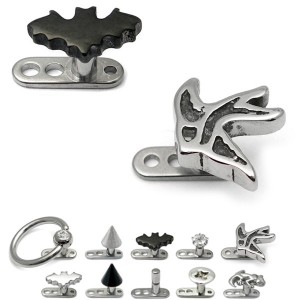
What Is The Dermal Piercing Procedure?
The most popular method is using a dermal punch; also know as a biopsy punch. Unlike a needle, which separates the skin, the dermal punch actually removes the tissue.
The skin diver can then be inserted into the hole. If you are having a dermal anchor inserted the base will be placed in at a right angle to your body then pushed under your skin parallel to your skin surface. Some piercers create a small pocket under the skin for ease.
The stem should sit at 90 degrees to your body otherwise it could heal and look squint.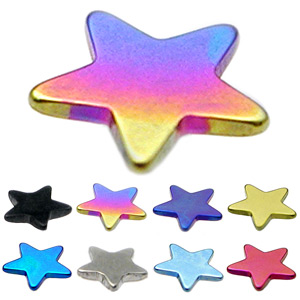
The dermal implant procedure should only be carried out by a qualified professional piercer. Your piercer should give you full aftercare information on how to look after your new dermal piercing.
Please note: should you ever be in need of an MRI scan, you will have to have your micro dermal jewellery removed before the scan can take place. As mentioned above, dermal piercings are considered to be permanent piercings and may be required to be surgically removed.
To view our range or dermal anchors and attachments visit our Dermal Piercings section at TDi Bodyjewellery.

